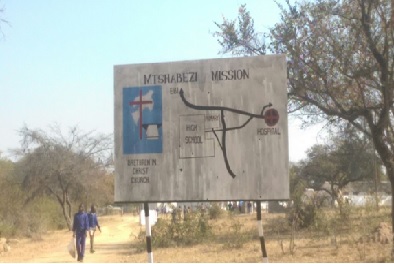The site visit involved meeting the local authorities and briefing them on the work to be undertaken. The visit included a courtesy call to the District Administrator, Provisional Administrator, Agritex Supervisor and the Acting Deputy Headmaster of Mtshabezi Mission. During the visit key contact details of other important local authority figures, such as the chief, councillors and headmen were also obtained.
Under this demonstration project assignment, the team will also conduct a baseline study to show the impacts of climate change at Mtshabezi mission located in the Limpopo Basin. The baseline study will be based on the “Water Security and Climate Resilient Development Framework”. The study findings will then be used in the implementation of the water, energy and food nexus demonstration project in the Tuli – Mtshabezi sub basin.
The baseline study will achieve to meet the following objectives:
- Identify water and climate related challenges in the area and provide solutions;
- Prioritise identified climate and water related challenges;
- Identify major stakeholders and their influence and
- Provide solutions to the identified challenges that are implantable in the short run.
Mtshabezi mission is about 110km southwest of Bulawayo and 20km near Gwanda town in the Mzingwane catchment of the Limpopo basin. The Mission was established in 1922. It is run by the Brethren in Christ Church headquartered in Bulawayo and is comprised of a high school, primary school, hospital, bible school with a total population of around 2200. The hospital and farm have their own separate amenities while the high school shares its water and energy sources with the primary school. The school uses water from old Mtshabezi Dam and most of time the water levels are significantly low due to reduced rainfall received and increased temperatures. As a result of unreliable supply of electricity, the school is currently using fire wood as a source of energy for cooking. The school also has a biogas digester which is not operating to its fullest due to shortage of feed.
Therefore, the project is being implemented against the backdrop of Zimbabwe’s reeling impacts of climate change, especially on the Limpopo basin. Due to climate change, temperatures have increased by 0.4°C, with the period from 1980 to 2000 being the warmest in history. Rainfall has also reduced in most of the stations with rainfall season getting shorter. The frequency of droughts and floods has also increased causing devastating effect to the economy which used to be agro based especially in the Southern parts of the country.
